How to Choose Between Engineered and Solid Bamboo Flooring

Bamboo has become a go-to surface for homeowners who want the strength of hardwood with a lighter environmental footprint. Yet once you start shopping, you’ll quickly discover two constructions – solid and engineered bamboo – and each behaves a bit differently under daily wear, moisture, and temperature swings.
Picking the wrong one can lead to headaches down the road, so it pays to understand what separates them before calling your preferred hardwood floor contractor in Greensboro. Keep reading for an overview of the differences between solid and engineered bamboo flooring and tips on how to choose the right fit for your space!
Which is better, solid or engineered bamboo flooring?
Though both versions of bamboo flooring come from the same raw material, their internal build sets them apart. Solid bamboo is crafted from fully compressed stalks or strands, while engineered bamboo sandwiches a real-bamboo wear layer over a cross-ply wood core.
This difference influences everything from stability and refinishing potential to where in the house each plank will thrive. Even if you invest in the best hardwood finish for your busy home, the construction type of the floor itself matters. The next sections explain what each option brings to the table and how to decide between them.
Solid bamboo
To make the solid bamboo material, manufacturers slice mature culms into strips, fuse them under heat and pressure, then mill the blocks into tongue-and-groove boards. Strand-woven formats compress shredded fibers in all directions, which gives them impressive hardness that often even tops traditional oak.
Some of its benefits
- Resilience: Dense fibers shrug off dents and pet claws, so they’re ideal for active households.
- Full-body construction: Because the material runs throughout, a solid plank can be sanded and refinished several times over decades of service.
- Natural look: Authentic grain variation and subtle color shifts deliver the organic warmth that many homeowners love.
Things to keep in mind
Remember that climate, especially humidity, can impact bamboo flooring. Even with proper acclimation, solid boards may show slight gaps or cupping if indoor conditions swing wildly between seasons.
Engineered bamboo
When making engineered boards, manufacturers bond a genuine bamboo veneer to a plywood or high-density fiberboard core set in alternating directions. The cross-ply structure resists movement, which makes the product less sensitive to moisture and temperature changes.
Some of its benefits
- Dimensional stability: Minimal swelling or shrinking lets engineered bamboo shine in finished basements, kitchens, or lake-level rooms where moisture can fluctuate.
- Installation ease: Many lines feature click-lock edges for floating installs, so they can be installed even over concrete slabs or existing coverings.
- Design range: Wear layers come in various thicknesses, textures, and stains, so it’s easy to combine multiple wood floor colors in one space without worrying about uneven movement.
Things to keep in mind
With engineered boards, refinishing depends on veneer thickness. Premium options allow one or two full sandings, but budget lines may be limited to a light screen-and-recoat. Confirm specs with your installer so long-term plans match product capacity.
How to pick the right bamboo surface
If the space is below grade, faces frequent cooking steam, or sits over concrete, engineered bamboo’s cross-ply core usually wins for its resistance to moisture-related curling and gapping. Conversely, climate-controlled upper levels – especially those where you may someday change stain colors – benefit from solid bamboo’s generous refinishing potential and extra hardness.
Consider timeline and budget as well: click-lock engineered planks often finish in a day with minimal mess, while the denser strand-woven solid boards demand more cutting time but repay you with unmatched durability. A professional installer will test sub-surface moisture, recommend the right underlayment, and follow manufacturer guidelines so whichever option you choose performs exactly as promised.
What’s the most dependable hardwood floor contractor in Greensboro?
Premier Hardwood Flooring has helped countless homeowners make smart, lasting choices when it comes to bamboo surfaces, and now we can do the same for you. Whether you’re remodeling a single room or planning a full-home upgrade, our hands-on service and expert installation ensure every board is placed with care and precision. Whether you need us near the Tanger Center or on the outskirts of Greensboro, we’re proud to serve clients with custom recommendations and craftsmanship that stand the test of time. Reach out today to schedule your consultation and get clear guidance on the right bamboo option for your space.



